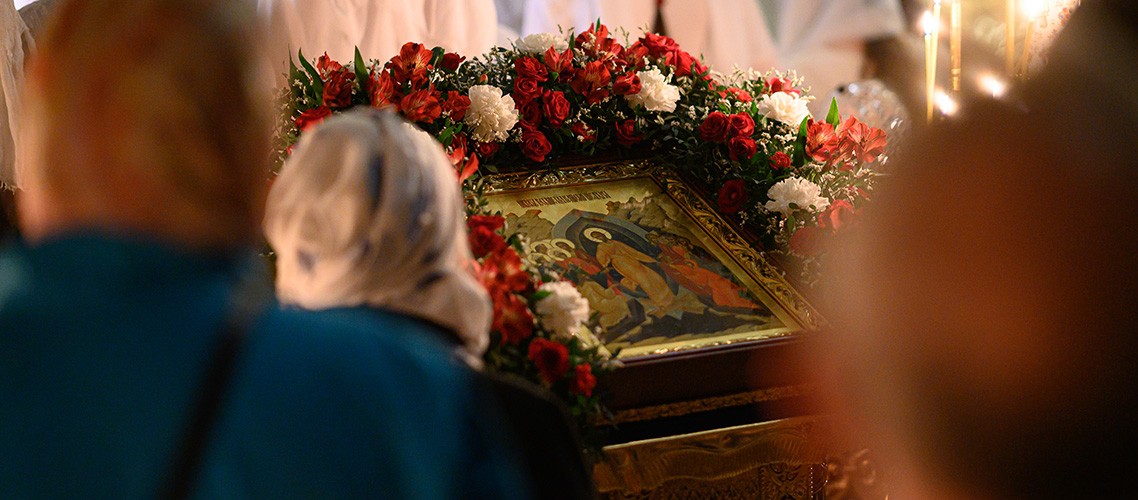
“Christ is Risen, and Death is Defeated”: Moscow Theological Academy Celebrates the Lord’s Pascha
“Come, let us rejoice in the Lord, who has shattered the power of death and enlightened the human race, crying out with the bodiless ones: ‘Our Creator and Savior, glory to Thee!’”
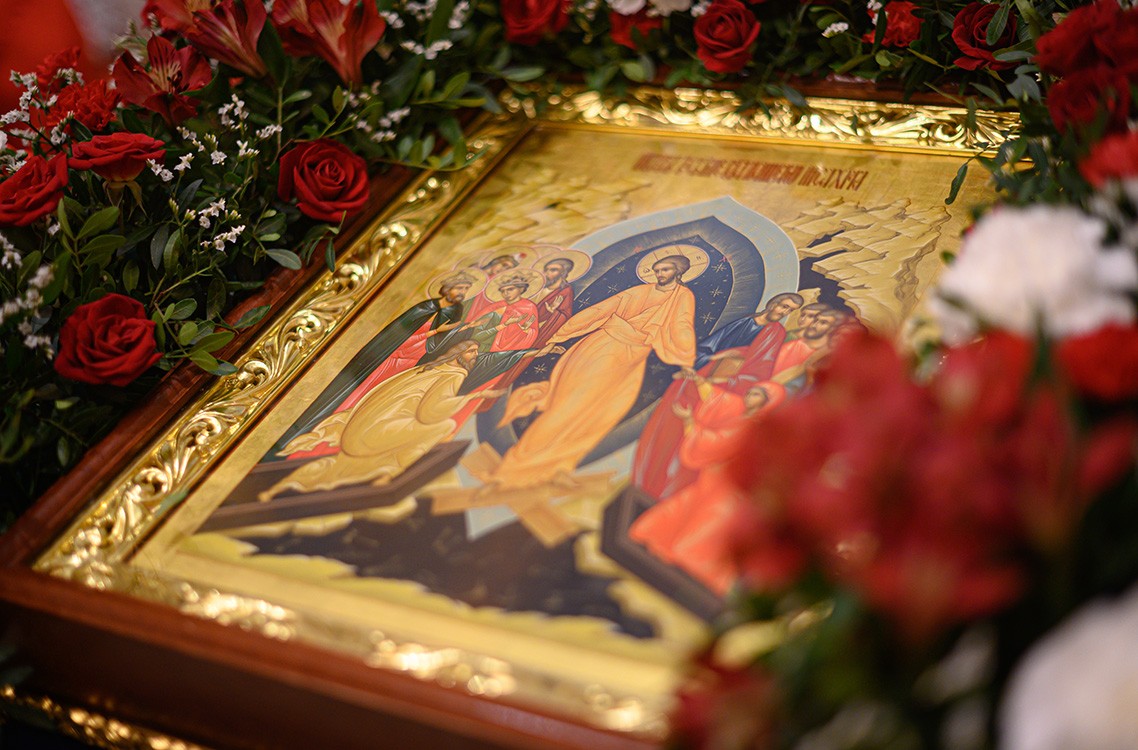
Today, humanity is freed from the dominion of death. By His death on the Cross, God abolishes and overthrows the ancient law that held sway over mankind. Death is no longer a tormenting and unknown end to life but a joyful and profound event filled with new meaning. Only in the light of Christ, His wondrous Incarnation, and glorious Resurrection does everything gain significance. Now, death is worth living for.
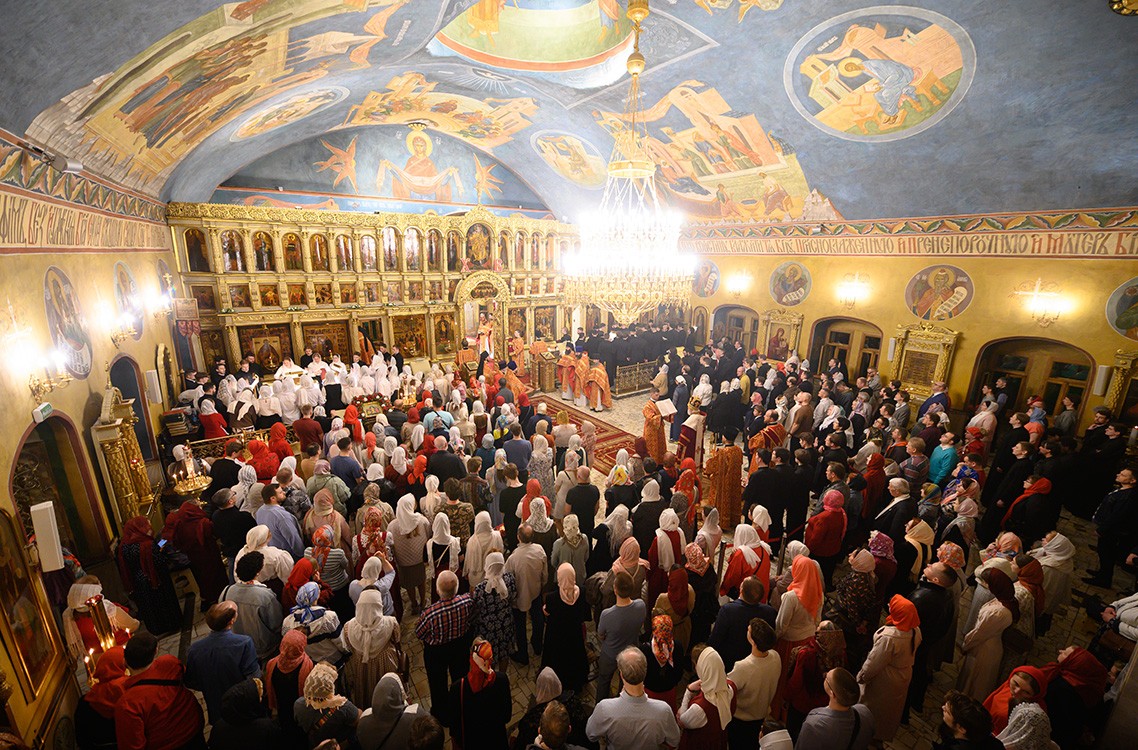
The academic community, together with the entire Church, glorifies the Savior of the world in joy and exultation, singing a triumphant hymn to Him.
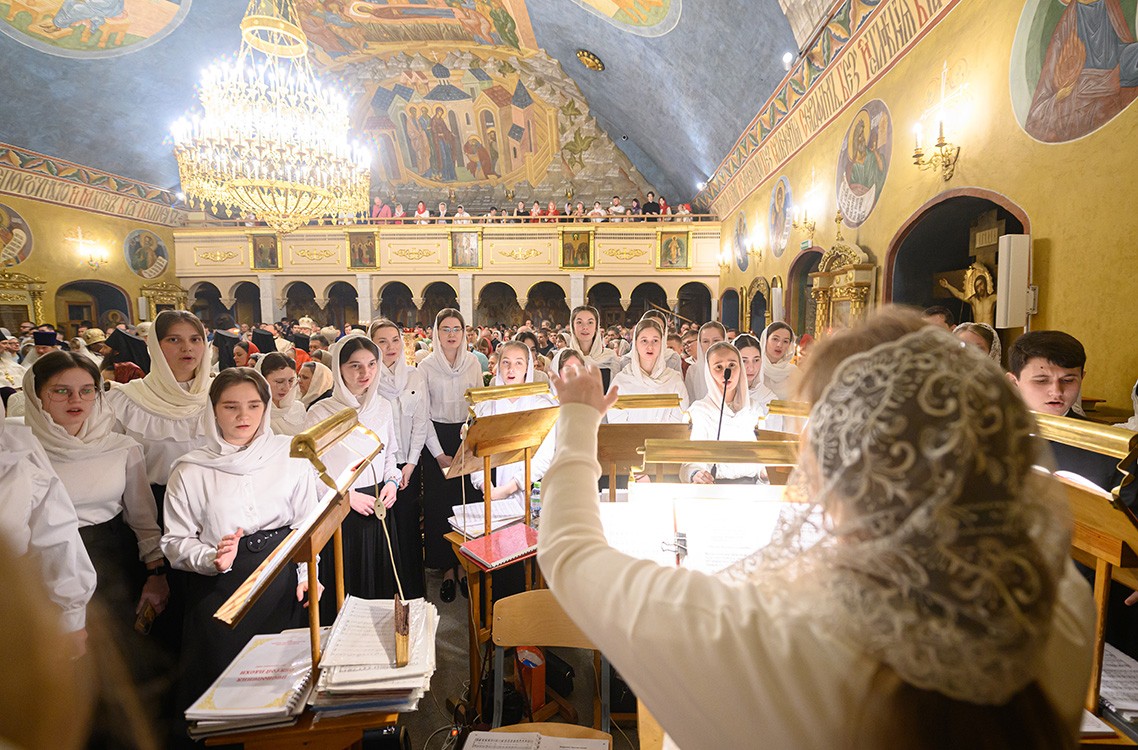
The solemn service, consisting of the Midnight Office, Paschal Matins, and the Divine Liturgy of St. John Chrysostom, was held on the night of April 19 to 20 in two churches of the Academy: the Church of the Intercession and the Church of St. John of the Ladder.
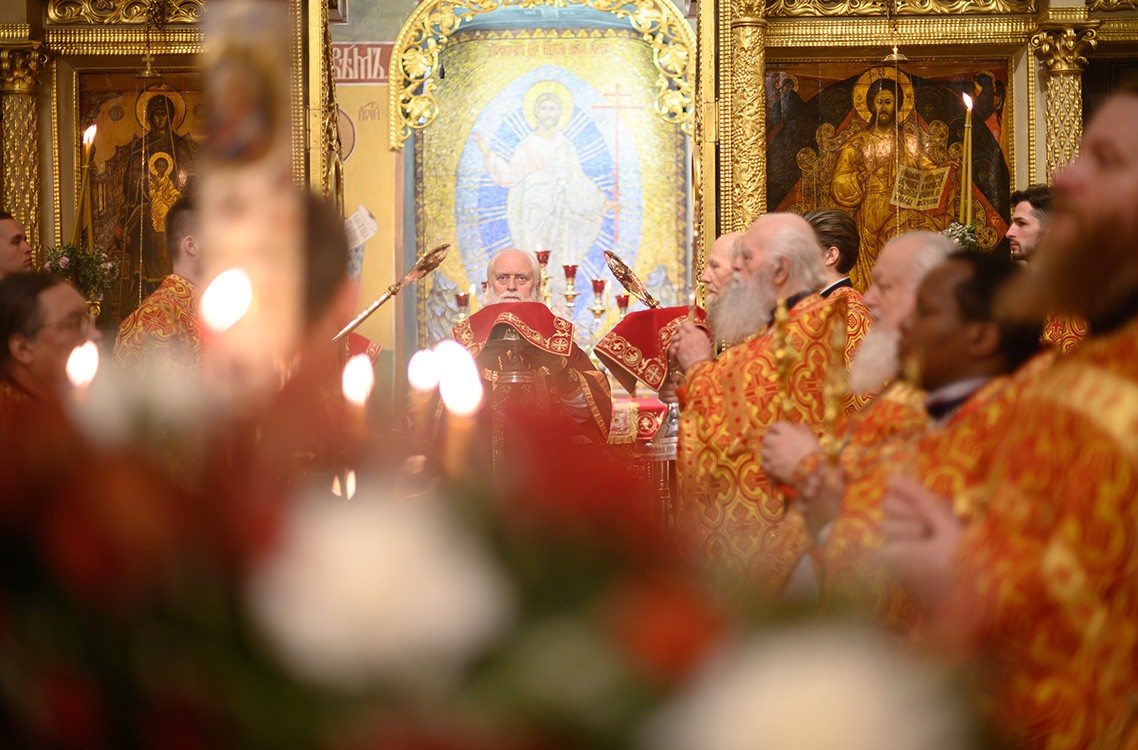
In the Intercession Church, the Paschal service was led by Metropolitan Eugene of Tallinn and All Estonia, assisted by the Academy’s clergy.
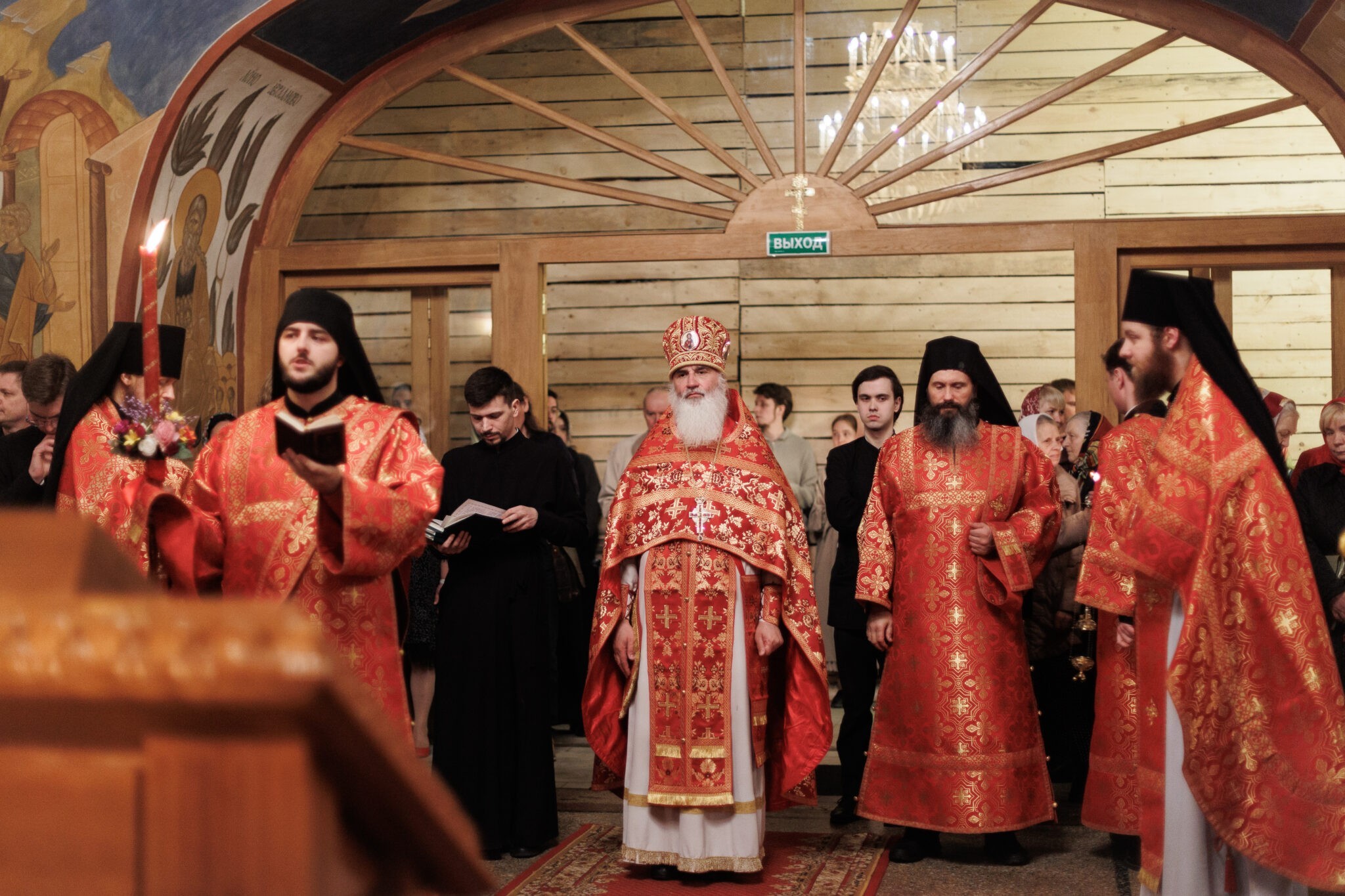
In the Church of St. John of the Ladder, the service was led by the church’s sacrist, Archimandrite Michael (Borey), also assisted by the Academy’s clergy.
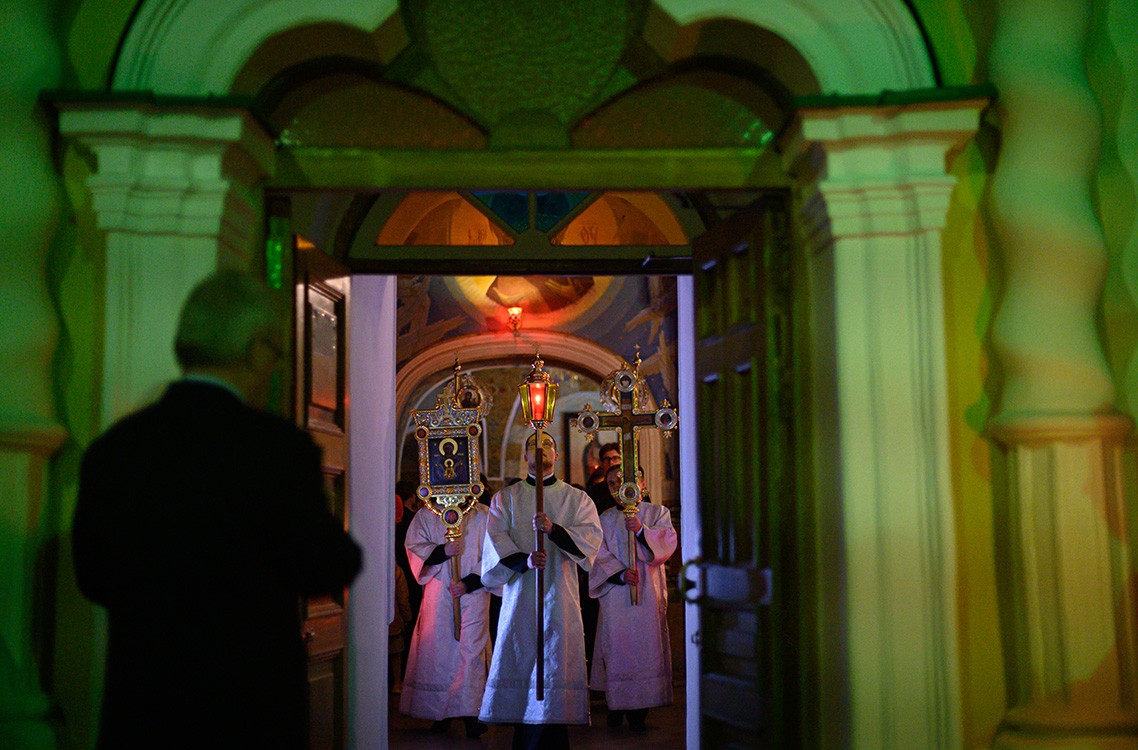
The service began with the Midnight Office, during which the clergy read the Canon of Great Saturday before the Shroud of the Savior.
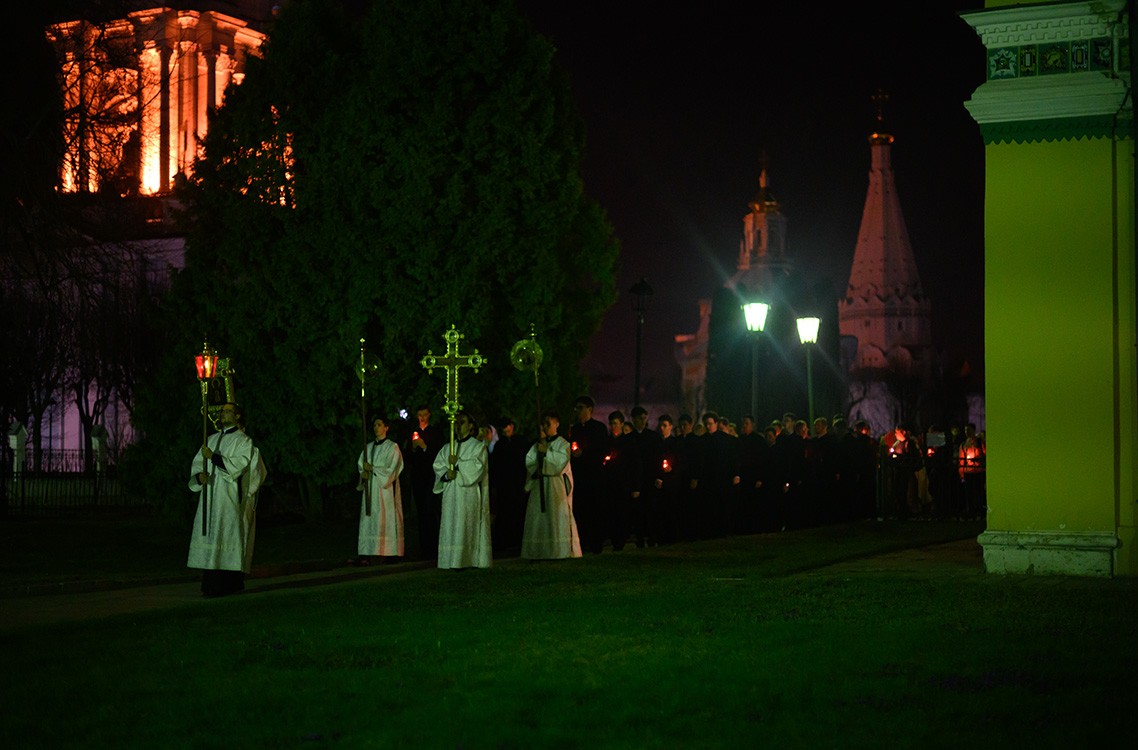
As midnight approached, the entire Academy joined the Paschal procession. To the sound of the Lavra’s bells heralding the start of the feast, clergy, students, faculty, numerous parishioners of the academic churches, and guests processed around the churches, singing the touching Paschal sticheron:
“Your Resurrection, O Christ our Savior, the angels sing in the heavens; grant us on earth to glorify You with pure hearts.”
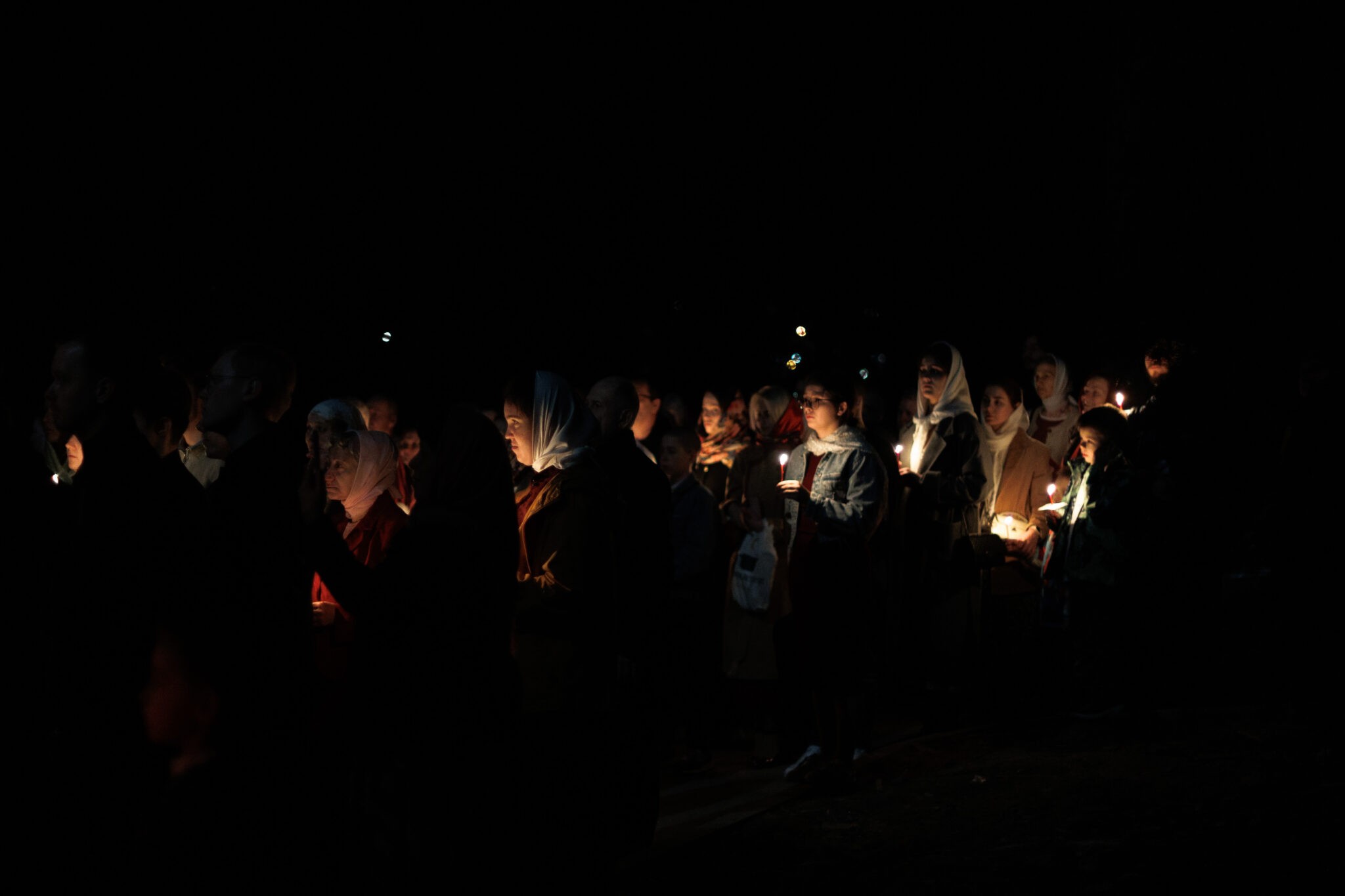
At midnight, the officiating clergy solemnly glorified the Holy Trinity with the festive exclamation: “Glory to the Holy, Consubstantial, Life-giving, and Undivided Trinity, always, now and ever, and unto ages of ages.”
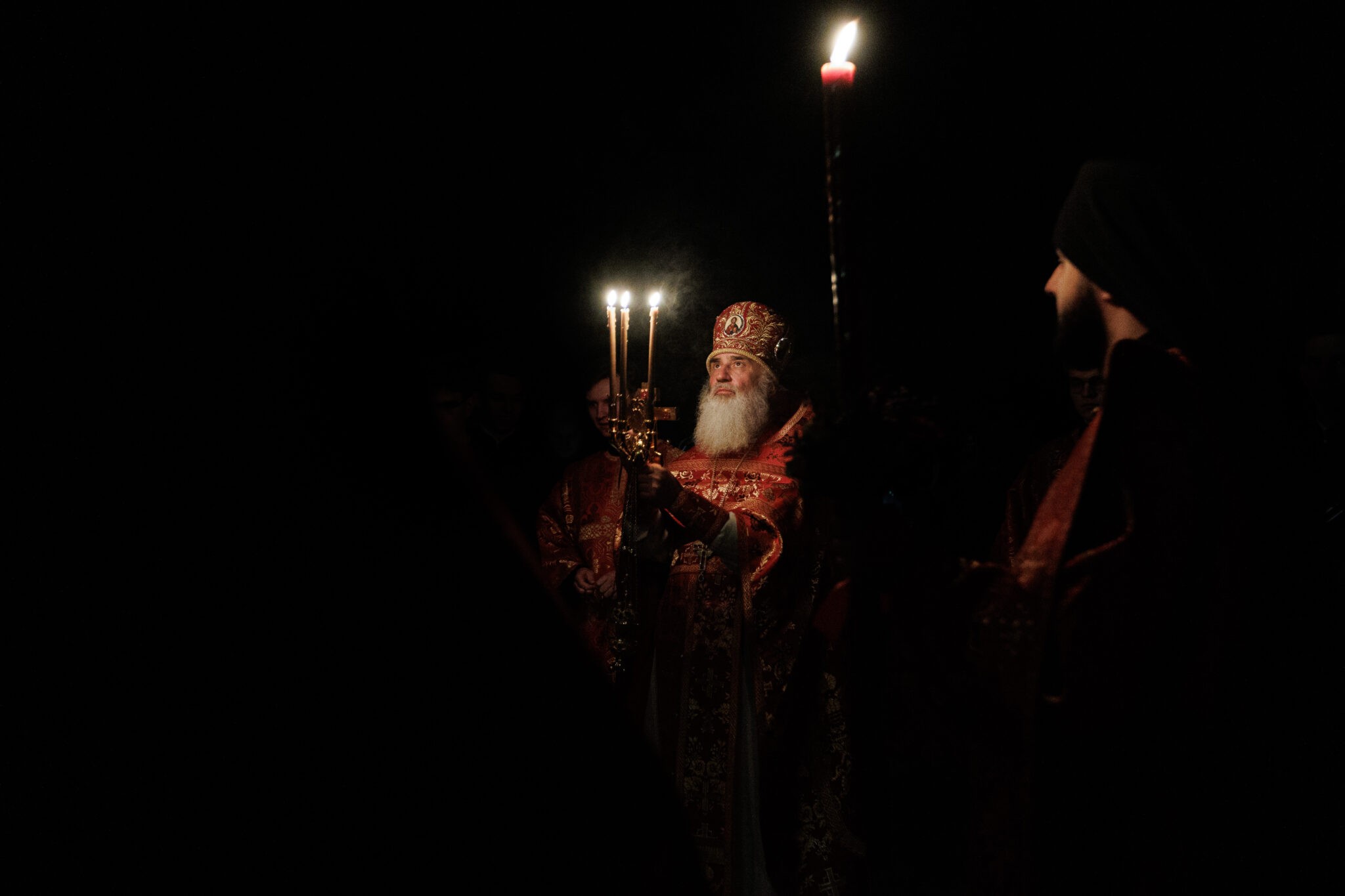
Following this, all entered the churches, and the Paschal Matins began with the festive Canon of Christ’s Resurrection.
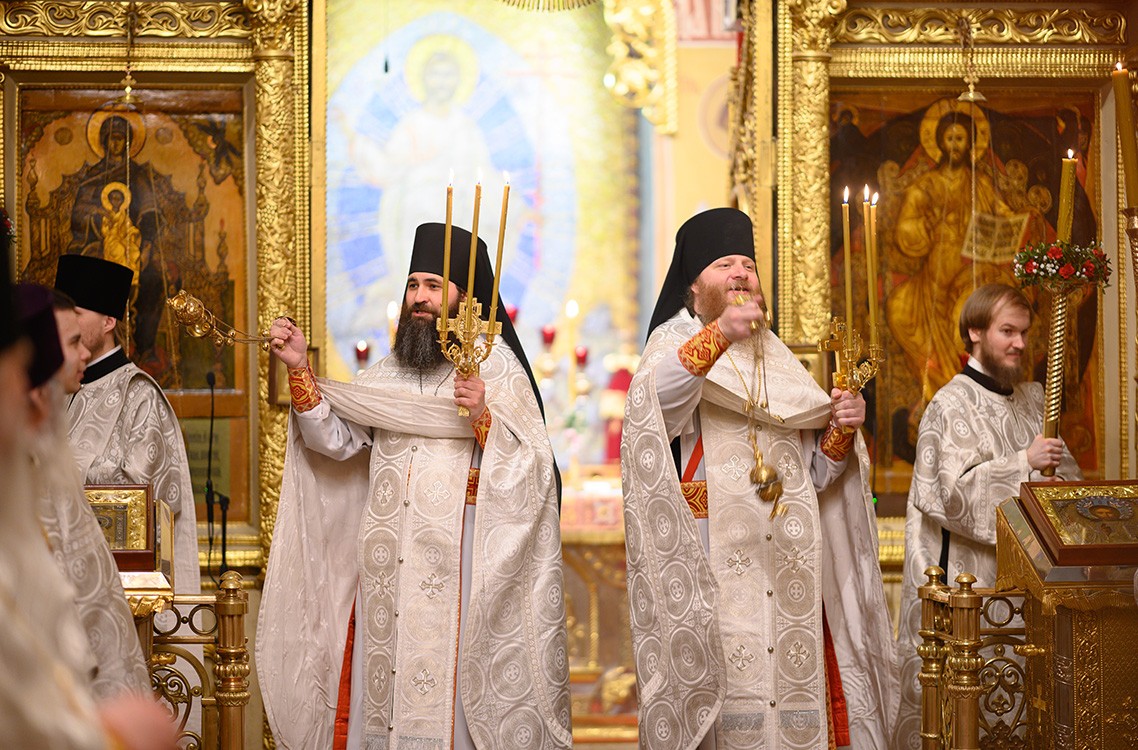
At the conclusion of Matins in the Intercession Church, Metropolitan Eugene read the Paschal Homily of St. John Chrysostom, traditionally proclaimed at the first Paschal service. In his homily, St. John emphasizes the universal nature of the Paschal celebration. The Lord invites everyone willing to accept Him to partake in the joy of the Resurrection. He calls all without exception—rich and poor, joyful and sorrowful, those who fasted and those who did not—for the joy of Pascha is all-encompassing.
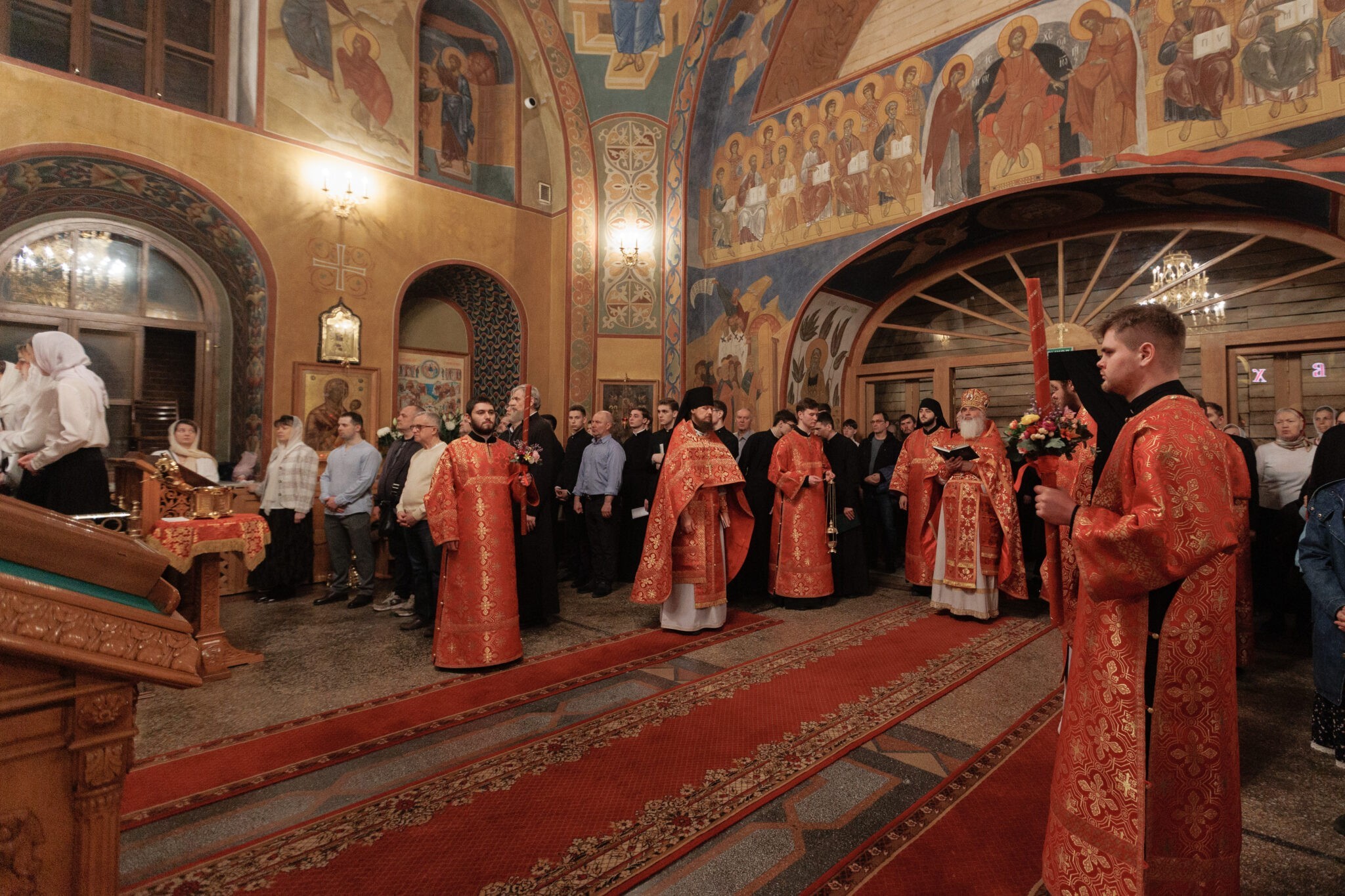
In the Church of St. John Climacus, Archimandrite Michael also proclaimed St. John’s homily.
The festive Divine Liturgy of St. John Chrysostom then began, preceded by the singing of the Paschal Hours.
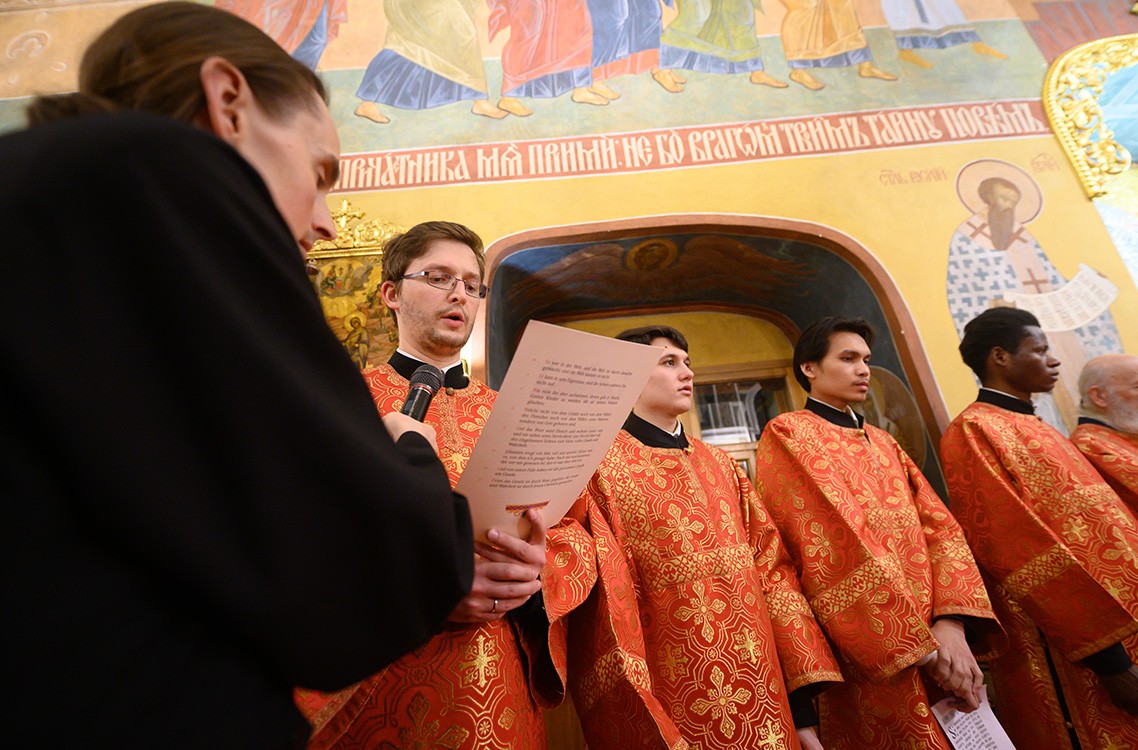
As is traditional, the prologue of the Gospel of John was read during the Liturgy in ancient and modern languages, including Ancient Greek, Latin, Syriac, Hebrew, Arabic, African languages (Swahili, Chiluba, Kikongo), Filipino, Georgian, Gagauz, Chuvash, German, Chinese, and Estonian.
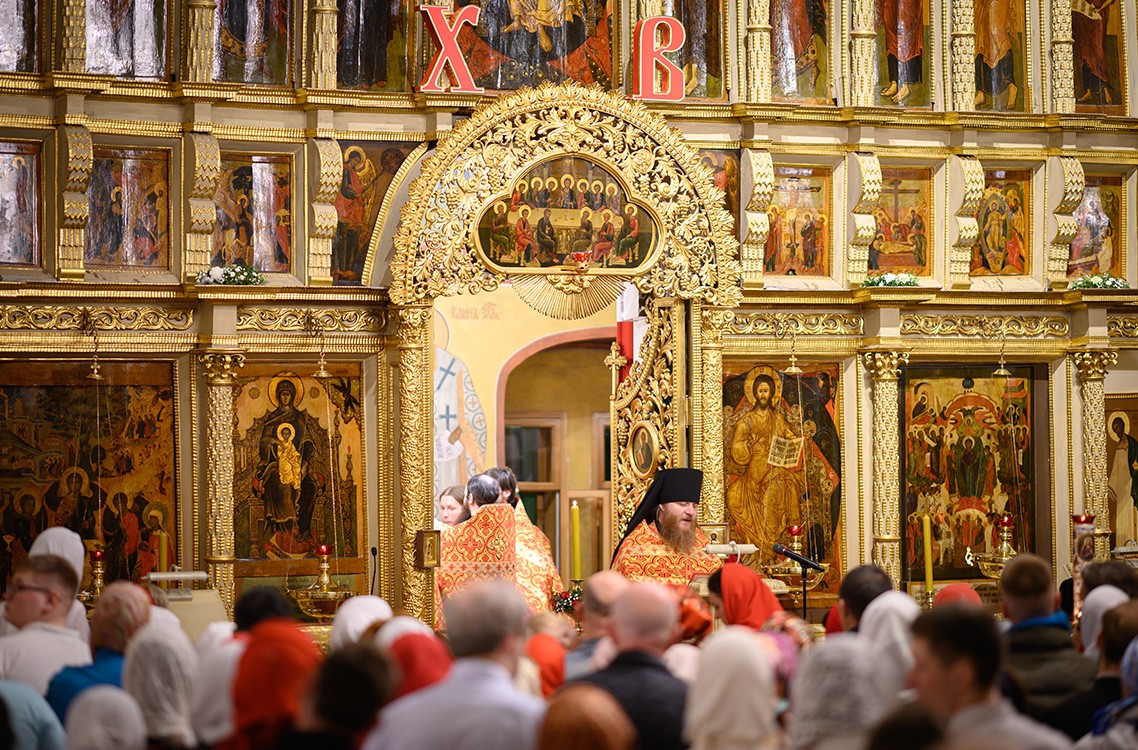
During the communion of the clergy in the altar, Hieromonk Barnabas (Losev), the dean of the Intercession Church, read the Paschal Epistle of His Holiness Patriarch Kirill to the archpastors, pastors, deacons, monastics, and all faithful children of the Russian Orthodox Church.
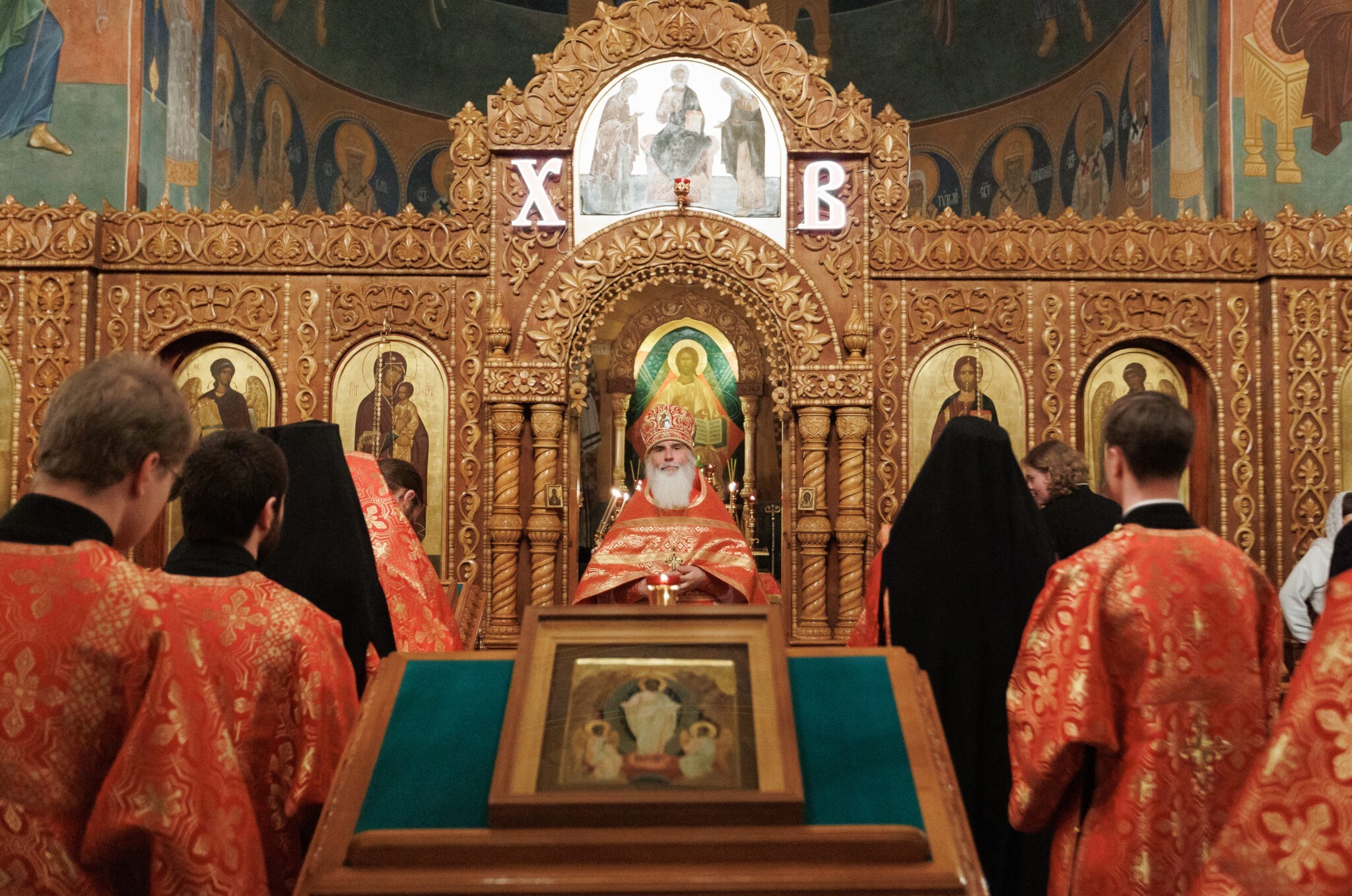
In the Church of St. John Climacus, Archimandrite Michael read the Patriarch’s Epistle.
After the Prayer Behind the Ambo, Metropolitan Eugene offered a prayer to the Lord for the blessing of the artos and Paschal foods.
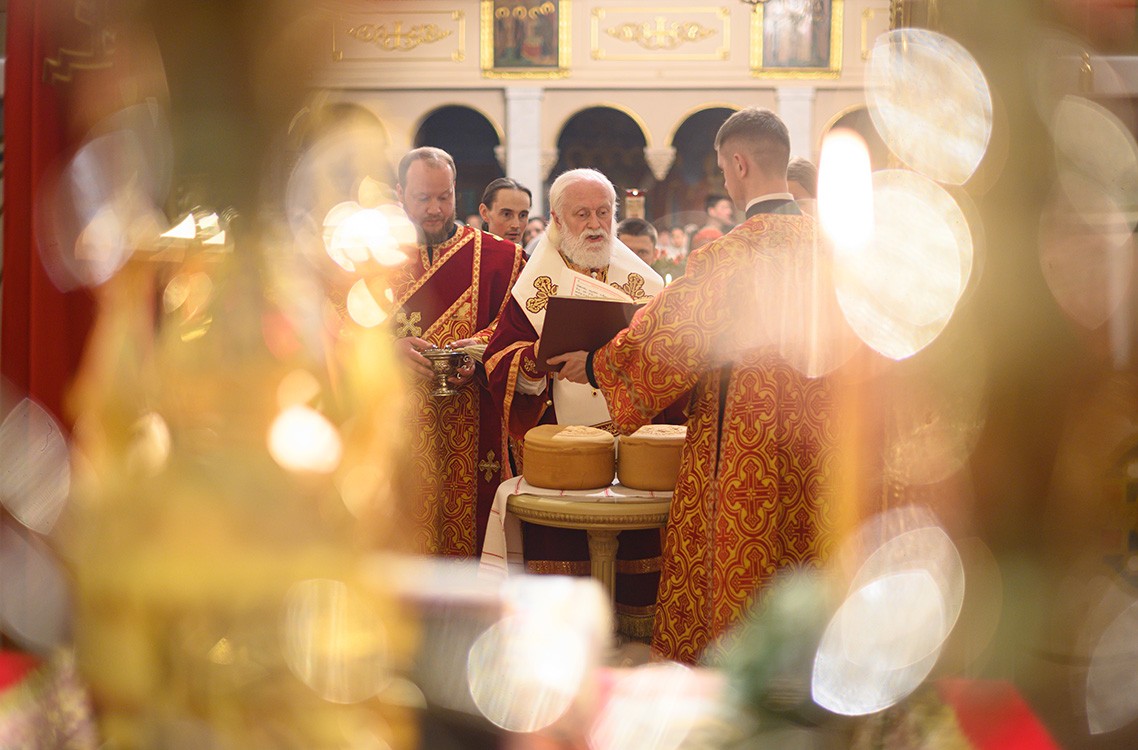
In the Church of St. John of the Ladder, Archimandrite Michael also offered the prayer for the blessing of the artos and Paschal foods.
Background information:
The liturgical hymns were performed by the 1st Academic Choir under the direction of E.V. Borovinsky and the 2nd Mixed Choir under the direction of K.A. Alekseeva.
MThA Press Office
